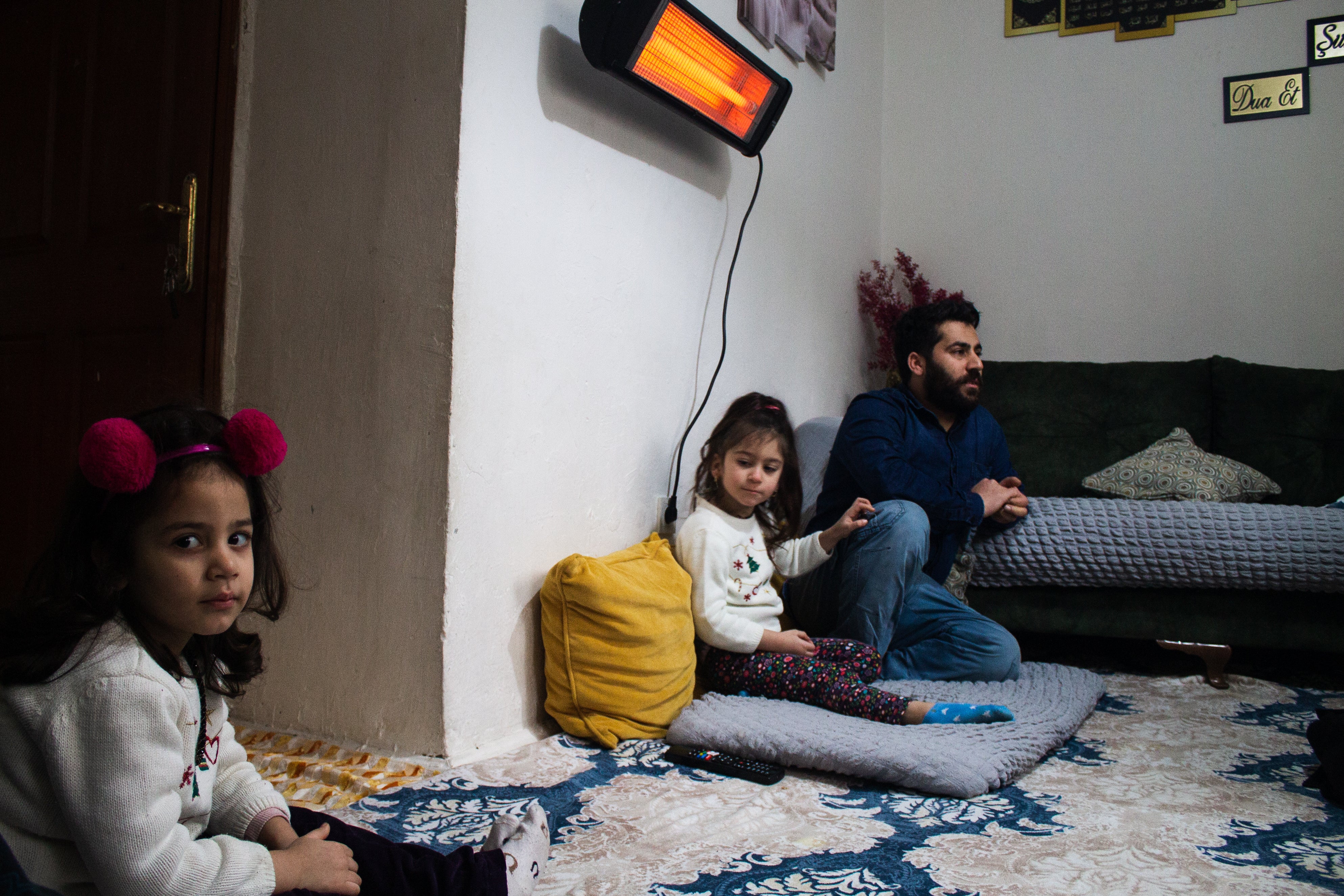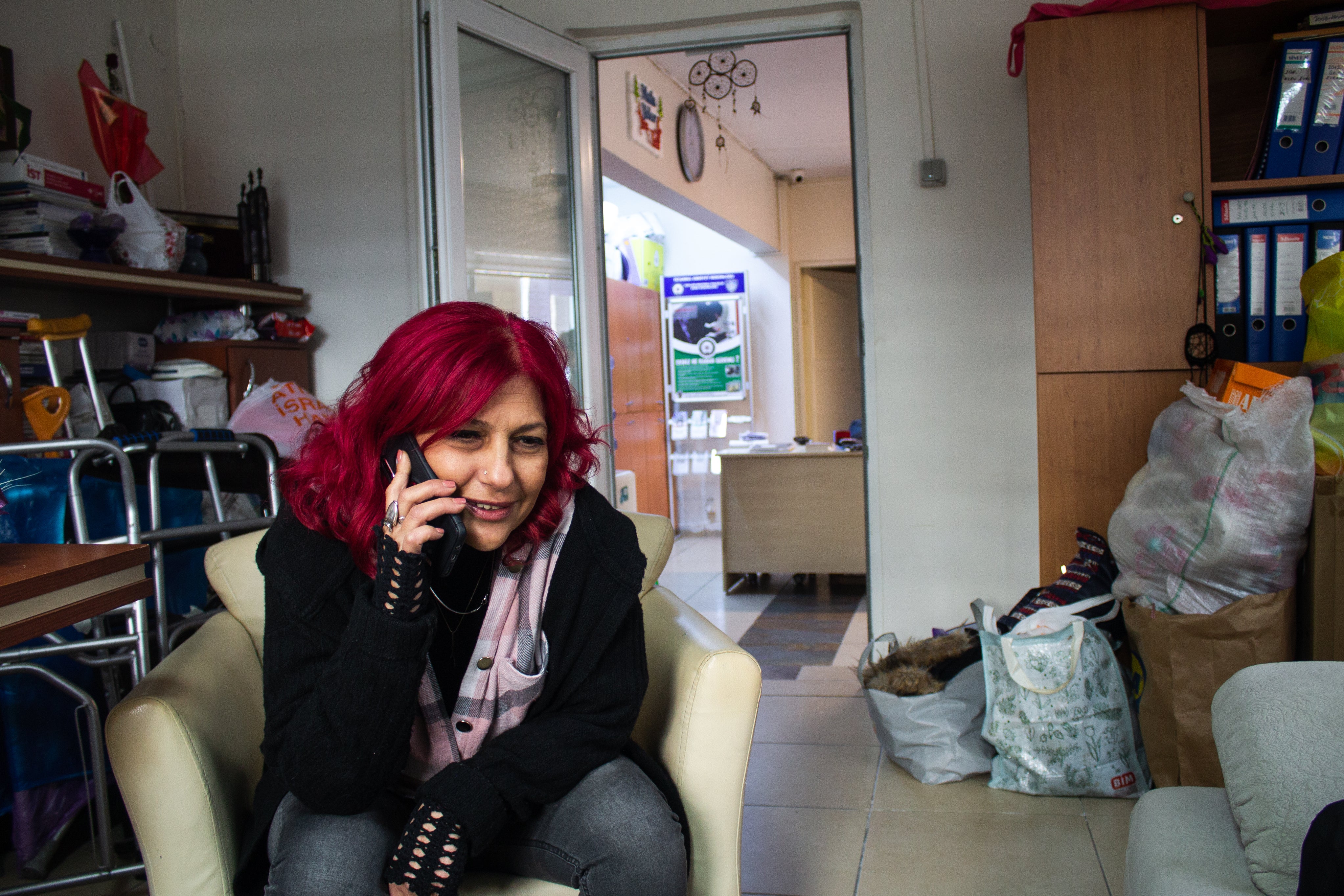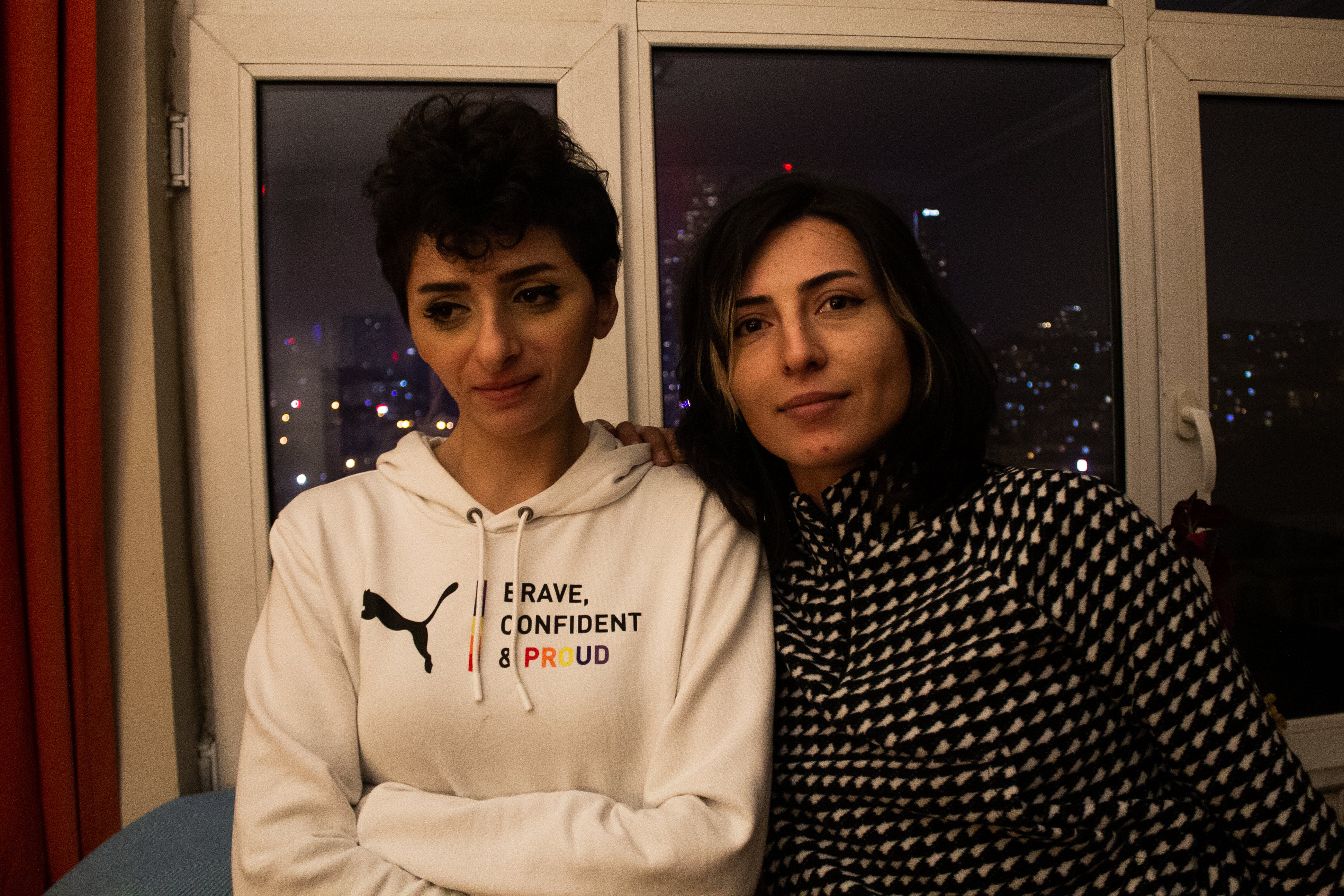‘A fire in their kitchen’: In Turkey, dreams are shattered by economic realities
Inflation and stagnant wages make the poor poorer and destroy aspirations of the middle class, writes Borzou Daragahi


It was just a few years ago, before Turkey’s economy began to spin out of control, when times were pretty good for Mevlut Tekin, his wife Yasemin and their children. Mevlut had a job at an Istanbul bakery, and the kids had good clothes and plenty to eat, and once a week the family could go out to a restaurant.
The Tekins are a relatively poor working class family with roots deep in the country’s Anatolian heartland. But Mevlut was making enough that – maybe with a little help from relatives – he was even considering a plan to move out of their rented ground-floor flat in the Istanbul district of Bakirkoy and purchase an apartment, fulfilling a dream of home ownership.
Now, though, the 29-year-old works more hours than ever before as a motorcycle grocery delivery man. The family are barely hanging on. Prices have exploded as the value of Turkey’s lira has collapsed, and if it wasn’t for social services and handouts, Mevlut, Yasemin and their three children, aged two, four and five, might be living in the street.
“Before we could afford to buy a chicken now and then,” says Mevlut. “Now we’ve even had to reduce the amount of food we eat.”
Turkey’s economy has been under tremendous strain, with the value of the lira dropping dramatically over the past year and official inflation at 25 per cent, with prices for some goods doubling in recent months. That has meant strains on the country’s financial reserves and worries among emerging markets investors about a G20 economy that was once considered an engine of growth and a magnet for foreign investment, which has all but halted.
In the neighbourhoods and villages of Turkey’s cities and countryside, it has meant desperation and impoverishment of working and lower middle class people whose aspirations have been shattered. Children are going to school hungry, or not at all because their parents cannot afford tuition. It has meant intense pressure on social services and community leaders trying to help prevent neighbours from falling through the cracks.

“The poor became poorer,” says Didem Koryurek Armutlu, an elected neighbourhood leader called a muhtar in a subdistrict of Bakirkoy. “Before, people were able to get by and were able to take care of their families. No longer.”
Like the rest of the world, Turkey’s economy was struck hard by the global pandemic which slowed trade and led to layoffs – that was when Mevlut lost his job at the bakery.
But Turkey’s woes have been exacerbated by runaway inflation caused in large part by what economists call President Recep Tayyip Erdogan’s “unorthodox” economic beliefs. He insists that high interest rates cause inflation, and has continuously pressured Turkey’s central bank to lower lending rates. The increase in the money supply has predictably sparked a devaluation of the Turkish lira. It has almost halved in value against the US dollar over the past year, and is worth about a quarter of what it was five years ago.
Real wages have halved and, since 2018, food prices have jumped 100 per cent.
More critically, the lira has dropped 50 per cent over the past few months, and fluctuated wildly with various interventions and hard cash infusions, adding enormous pressure and unpredictability to the lives of ordinary people as well as businesses.
“For middle-class families, the inflation they’re experiencing is mostly food prices, heating and education costs for their children,” says Alp Erinc Yeldan, a professor of economics at Istanbul’s Kadir Has University. “People are experiencing a fire in their kitchen that has come in a very short period of time. This has led to a fear for the future. People are losing their incomes and savings.”
Armutlu, a fiery local leader with dyed candy-red hair, describes harrowing scenes of poverty in her mostly middle and upper-middle-class neighbourhood. Of women walking into her office, weeping that they were unable to send their children to school because they lacked anything to give them for lunch. Of dignified elderly men circling her office for days before finally wandering in and admitting that their cupboards were bare and bills unpaid.
The number of court cases seeking action for unpaid bills against the 40,000 residents of her district has grown six-fold, she says.
Armutlu’s office is filled with donations of clothes and toys she collects from generous business owners to distribute to those hardest hit.
“But there are families that are too embarrassed to come and ask for help,” she says, noting with frustration that fulfilling the dire needs of people in economic ruin is not really part of her job description as a muhtar, whose central role is to confirm people’s addresses and residency status.
Armutlu’s family have also suffered. Her 22-year-old daughter was pursuing her dream of studying in the United States at Temple University in Philadelphia. But as the lira collapsed against the dollar, they could no longer afford her studying and living abroad, and she was forced to cut her education short and return to Turkey.
Even having a job is often not enough. As a delivery man, Mevlut makes 40 per cent more than he did at the bakery, but costs have skyrocketed, wiping out any gains. Yasemin complains that prices for bedsheets to keep warm during the winter have tripled. Eggs have more than doubled.
Economist Selva Demiralp, of Istanbul’s Koc University, described an inflation rate above 25 per cent, compared to about 5 per cent in the UK and the Eurozone and 6.8 per cent in the US. The inflation hits those on fixed incomes or living off savings hard.
“Income distribution is deteriorating and the poverty rate is increasing,” she says. “The inflationary environment makes longer term planning of the middle-income families as well as the rest of the country very difficult.”
The strains have been especially hard on women, children and young people struggling to enter the workforce or finish up their degrees. Impoverished women used to earn extra money cleaning homes, but were forced to stay at home and tend to their children when daycares and schools shut because of the pandemic. With the economic meltdown, fewer families are able to afford hiring house cleaners or other extras.

Nazan Akbulut, a 36-year-old single mother and hairdresser, struggles to make ends meet for herself and her 10-year-old son, Deniz. She began to fall behind on payments and feared she wouldn’t be able to pay for even the modest public school fees. Her former partner has been unable or unwilling to help with child support payments. Then, in the autumn, she lost her job. Finally, some of her regular clients intervened, helping pay Deniz’s school fees and offering the boy some second-hand clothes.
The pressure got to both of them. Deniz’s teacher began complaining that he was misbehaving in school, and a doctor placed Nazan on antidepressants.
“My depression is absolutely related to the economy,” she says. “It’s about not being able to make ends meet.”
Desperate to protect themselves from inflation, those with money have turned to dollars, euros or cryptocurrencies, adding to the lira’s woes. Landlords have begun jacking up rents, for fear that what they charge now will be worthless in a year’s time. That has put pressure on university students and young people seeking to find their way during or after finishing up their schooling.
“Eight to 10 students are living in two-room apartments and sharing the house, taking turns sleeping just like the slums of Charles Dickens novels,” says Yeldan, the professor.
Elif Coban, 26, a recent university graduate, had a job as a management assistant working for a company that sold and installed sound and lighting equipment. She was laid off about a month ago after no one was willing to pay for the high-end equipment they were importing from Europe. She now struggles to pay rent, and wonders how she’ll survive.
“I feel hopeless,” she says. “I can’t make any plans regarding the future and I don’t have any hopes under these circumstances.”

Mevlut is grateful that he has a job, even though it is more dangerous, requires longer hours without overtime and ultimately provides him and his family with less than he earned before. Every day, he loads up groceries ordered online and delivers them to homes. His employer, one of the largest and fastest-growing grocery delivery services in Turkey, has made record profits during the pandemic, and is known to treat its drivers well.
But he admits he sometimes feels pangs of despair, especially when he hands over the high-end foods ordered by other families: fresh meats, fancy grains or exotic fruits that he believes he will never be able to afford. He notes that he also has 10,000 Turkish lira in credit card debt that he’s barely able to pay off.
“It affects me, I have to say,” he says. “I can’t even afford a nice brand of rice. And as time goes on, things keep getting worse and worse.”
Naomi Cohen contributed to this report






Join our commenting forum
Join thought-provoking conversations, follow other Independent readers and see their replies
Comments